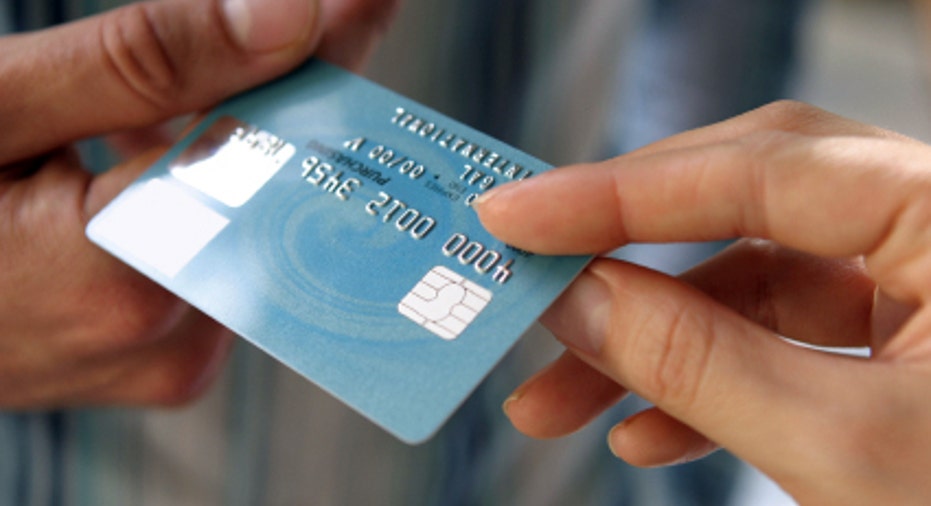Does Your Credit Pass the Stress Test?

Since April is National Stress Awareness Month - and Financial Literacy Month too - now is the perfect time to identify the personal finance issues that could cause stress for you and your loved ones.
Money problems of all kinds are a major source of anxiety and stress for many Americans. Anxiety and stress can lead to headaches, depression, ulcers, high blood pressure, panic attacks, distracted driving accidents and more. And such financial stress affects everyone - single people, married couples, the elderly, even children and teens.
Sometimes the convenience of credit cards can cause financial stress to build up without your being aware of it.
When it comes to your finances, watch out for these six common indicators of credit stress:
1. Operating too close to your credit limit
Are any of your credit cards maxed out or near their limits? If so, you're likely operating on the edge - financially and physically.
"Not feeling in control of your financial destiny takes an emotional toll," says Eric Tyson, the author of "Personal Finance for Dummies." "When you don't have a handle on your finances, you experience increased stress and anxiety."
Tyson's solution: cut back on your spending and credit card usage. Whether it's clothes, vacations or meals out, Tyson says if you can't afford something with cash, you can't afford it at all and should curb such spending.
"Credit cards offer temptation for overspending and carrying debt from month to month," he notes. "If you absolutely must use credit, replace your credit card with a charge card. A charge card, like the American Express Card, requires you to pay your balance in full each billing period."
2. Using credit to bridge the gap between paychecks
If you don't have the resources to get by from week to week, and find yourself constantly whipping out a credit card to make ends meet, you're on shaky ground - and so is your credit.
To avoid this chronic problem, beef up your savings. "We should all have emergency cash funds," says Michael Rubin, CPA, a Certified Financial Planner and the author of "Beyond Paycheck to Paycheck" and "The Savings Solution."
Rubin also suggests taking simple steps to maximize your savings, like trying an Internet bank for higher yields on your savings or participating in a 401(k) plan at work and getting a matching contribution from your employer. "These are things that really require no additional work," Rubin says.
3. Opening new lines of credit for the discounts and signup offers
While it can be tempting to apply for new credit cards to score thousands of free airline miles or other credit card perks, it's also a strategy that's best used judiciously. Rewards cards typically carry slightly higher interest rates, and if you don't pay your balances in full each month their benefits are offset by additional finance charges.
Even credit cards with "teaser" offers or very low rates should be sought sparingly. You don't want a slew of credit inquiries to lower your credit rating, or make it tempting to run up even more debt.
"Resist the lure of 0%-down financing and credit cards that make too-good-to-be-true offers to get you to sign up," advises Tyson. Whether or not an offer seems too good to be true, it's always good to read beyond the marketing slogans to the terms and conditions to be sure you understand the offer.
4. Waiting until the last minute to send in payments
It's one thing to pay a bill at the eleventh hour because you were super busy or you simply forgot. But it's another matter entirely when you are juggling which bills to pay or you simply don't have the money to pay what you owe.
When you're scraping up money to pay bills at the last minute, realize that anything could happen to derail your plans. Something as simple, but as common, as a delayed mail delivery could lead to you being hit with a credit card late fee.
5. Having credit cards declined when you try to use them
Having your credit card rejected at the cash register is not only embarrassing, it's also indicative of a credit problem. The most likely culprits: you're over your limit, or your payment is seriously past due. Whatever the scenario, in most cases, you should see a denial of credit usage as a major red flag that you must fix pronto. Paying down your credit cards will lower your balances and your financial anxiety too.
6. Getting repeated calls from debt collectors
Once debt collectors start hunting you down at home or work, you're clearly in the credit danger zone - and likely dealing with a high level of financial stress. Be aware of your legal rights and the laws by which bill collectors must abide, particularly the Fair Debt Collection Practices Act.
Also, take heart in knowing that the Consumer Financial Protection Bureau recently drafted a rule to regulate the business practices of collections agencies and credit reporting firms.
"Debt collectors and credit reporting agencies have gone unsupervised by the federal government for too long," Richard Cordray, the bureau's director, told reporters on Feb. 16. "It is time to provide the kind of oversight of these markets that will help ensure that federal laws protecting consumers in these financial markets are being followed."
If your credit doesn't pass the stress test, at least that's one reason you may breathe a sigh of relief.
The original article can be found at CardRatings.com:Does your credit pass the stress test?



















